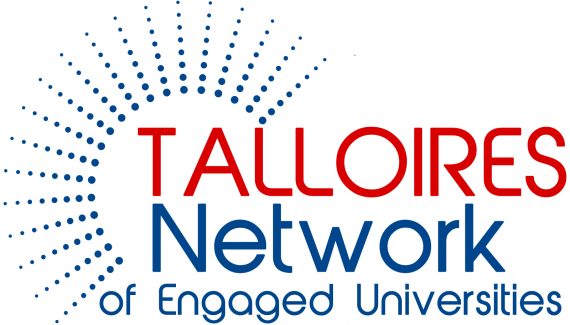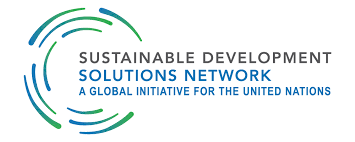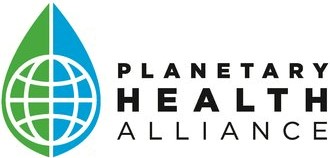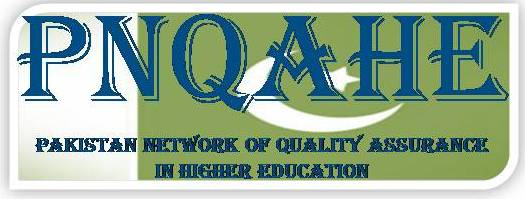The National University of Medical Sciences (NUMS) has become a member of the Global Climate and Health Alliance (GCHA). The GCHA was formed in Durban in 2011 to deal with climate change and to protect and promote public health. The Alliance was launched following the inaugural Climate and Health summit, which took place during the 17th Conference of the Parties (COP17) to the United Nations Framework Convention on Climate Change (UNFCCC).
The GCH Alliance comprises health and development organisations worldwide united by a shared vision of an equitable, safe, and sustainable future. The GCHA vision is a world in which the health impacts of climate change are kept to a minimum, and the health co-benefits of climate change mitigation are maximised.

The National University of Medical Sciences (NUMS) has been invited to join the Global Consortium on Climate and Health Education (GCCHE), a global network of health professional institutions and associations to train this and the next generation of health professionals in climate and planetary health!
The GCCHE was launched in 2017 and currently includes members from over 275 health professions schools of medicine, nursing, social work, and public health, representing 36 countries and three regional association members. It provides a platform for member institutions to collaborate, convene, and exchange ideas and tools to integrate training on the health impacts of climate change into their curricula. The GCCHE is a platform to organize, empower, and amplify the voice of health professionals to convey how climate change is harming our health and how climate solutions will improve it.
Dr Hina Shan, Assistant Professor of the Department of Public Health, NUMS, has been interviewed for the Climate Clinic -Code Red series, a podcast series by GCCHE.
An in-depth discussion regarding catastrophic flooding, climate crisis and the impediments from a Public Health perspective in Pakistan has been broadcasted by Columbia University. The link and overview to the podcast are shared below:
https://www.publichealth.columbia.edu/research/global-consortium-climate-and-health-education
https://podcasts.apple.com/gb/podcast/cod-red-episode-1/id1643935712?i=1000581898184

NUMS joins Pakistan Chapter of Talloires Network of Engaged Universities (PCTN) in August 2019.
Pakistan Chapter of Talloires Network (PCTN) is a collaborative chapter with the US based organization Talloires Network of Engaged Universities, previously known as Talloires Network (TN).
PCTN was established in 2013 when 35 Pakistani universities, which were then members of TN, agreed to form a coalition to promote and strengthen civic engagement in Pakistan. An agreement between TN & PCTN was signed to formalize partnership and outline responsibilities which included:
PCTN was formalized on July 1, 2013 at NUST in the presence of the then Federal Minister Planning, Mr. Ahsan Iqbal and Federal Minister for Science & Technology, Mr. Zahid Hamid, Executive Director TN Mr Rob Hollister and Executive Director HEC, Dr. Mukhtar Ahmad. At that time 35 Pakistani universities joined it as founding members. Since then the membership has been steadily growing and there are 74 institutions that are members of PCTN till end of 2022.
NUMS as a Sustainable Development Goals (SDGs) engaged university is very much committed to serve the community by conducting community engagement activities on regular basis through involvement of its faculty and students.

NUMS joins Sustainable Development Solutions Network (SDSN).
SDSN is a global network of knowledge-generating institutions advancing the Sustainable Development Goals (SDGs). The SDSN mobilizes the world’s academic and research institutes and leverages their strengths to help realize the SDGs and the Paris Agreement. The SDSN pursues its mission by working with member institutions in countries around the world, organized into networks at the national and regional level. Each network focuses on distinct projects and priorities in line with their local contexts and challenges. SDSN has
In their respective countries and regions, SDSN’s networks of universities, research centers, and other knowledge generating institutions translate the latest expertise in sustainable development into action by:
NUMS as a SDGs Engaged University is very keen to serve the nation as a whole through research, advocacy and provision of innovative solutions towards achievement of SDGs by collaborating with other institutions at national & International level in the field of medical, allied health and social sciences.
(https://www.unsdsn.org/pakistan)

Protecting nature, protecting our health.
National University of Medical Sciences (NUMS) Department of Public Health has joined the Planetary Health Alliance (PHA), a consortium of over 200 universities, non-governmental organizations, research institutes, and government entities from around the world committed to understanding and addressing global environmental change and its health impacts.
We can no longer ignore the human-caused disruptions of our natural environment. We can no longer ignore the impacts that global environmental change has on our health, with globally increasing diseases, heat-related mortality, mental health risks, and decreasing nutrition affecting communities worldwide. These challenges provide opportunities for cross-disciplinary action. NUMS is proud to be a member of @ph_alliance, being a member of the PHA represents our commitment to collaboration on some of the most urgent challenges of our time.
NUMS Logo is also available on PHC website:
https://www.planetaryhealthalliance.org/pha-members-jr?page=2

NUMS joins as Full Member of “Pakistan Network of Quality Assurance in Higher Education (PNQAHE)” on Feb 24, 2022.
Pakistan Network of Quality Assurance in Higher Education was launched in the 1st International Conference on Quality Assurance in Higher Education held on December 18-19, 2017 organized by Khyber Medical University at Peshawar. In the conference, establishment of Pakistan Network of Quality Assurance in Higher Education was proposed to provide a platform to QECs of Pakistani HEIs which are established in over 200 universities. The proposal was accepted by almost all the participants from national and international HEIs. Therefore all the members of the conference were nominated as full members of PNQAHE and an interim committee was constituted for the voting process of executive committee of the network. The executive committee was constituted on September 27, 2018 and nominations of other positions of the board were also finalized on the same day.
NUMS through PNQAHE membership intended to connect and collaborate with QECs of Pakistani HEIs in the member universities.

NUMS joins “Non-Communicable Disease (NCD) Alliance” as a Network Member on 13th April 2022 valid for lifetime. NUMS is now a part of NCDA Membership Directory (listed by name and location) at (https://ncdalliance.org/).
The NCD Alliance (NCDA) is a robust global network of more than 2,000 organizations in 170 countries including global and national NGOs, scientific and professional associations, academic and research institutions. In May 2017, the NCD Alliance transitioned to become a full-fledged NGO, based in Switzerland. NCDA maintains strategic relations with the World Health Organization, UN and governments, and staff in Geneva, London, and New York, putting it at the forefront of elevating Non-Communicable Diseases (NCDs) onto the global health and development agenda.
The global epidemic of Non-Communicable Diseases (NCDs) is widely acknowledged as a major development challenge in the 21st century, and a significant threat to achieving internationally agreed Sustainable Development Goals (SDGs). By having NCD Alliance Membership, NUMS will have access to various platforms for deeper engagement between partners/allies working on similar themes and challenges of NCDs. Addressing NCDs and its risk factors will help Pakistan progress across the three pillars of sustainable development economic growth, social equity, and environmental protection.
The membership has been obtained through the efforts of Dr Hina Shan, Assistant Professor, NUMS Department of Public Health who is also the NUMS focal person for the network.
NUMS has been accepted by the Association of Quality Assurance Agencies of the Islamic World (Islamic-QA) as an Associate Member.
Islamic-QA was established on May 4, 2011 in an effort to promote and enhance quality of higher education in the countries of the Islamic World. The Association offers two types of Memberships; Full Members and Associate Members. Currently, 46 Universities from Islamic Republic of Pakistan are associate members; whereas HEC is a Full Member of Islamic-QA.
This Membership will enable NUMS to promote/enhance quality of higher education by participating and making contributions to the quality of higher education in the countries of the Islamic World through Islamic-QA forum.
NUMS has joined over 1400 academic and research institutions from 139 countries who are members of the United Nations Academic Impact (UNAI), a UN platform.
https://academicimpact.un.org/content/national-university-medical-sciences-nums
UNAI is a program of the Outreach Division of the United Nations Department of Global Communications. It’s an initiative that aligns institutions of higher education with the United Nations in supporting and contributing to the realization of United Nations goals and mandates, including the promotion and protection of human rights, access to education, sustainability and conflict resolution.
Since 2010, UNAI has created a vibrant and diverse network of students, academics, scientists, researchers, think tanks, institutions of higher education, continuing education and educational associations. Since its inception some thirty international networks of universities and other institutes of higher education and research have endorsed UNAI and encouraged their members to join, representing a global diversity of regions and a thematic wealth of disciplines.
The work of these institutions is vital to achieving the Sustainable Development Goals (SDGs) as they serve as incubators of new ideas, inventions and solutions to the many global challenges we face. UNAI provides the integral link to these stakeholders to ensure that the international community harnesses the energy and innovation of young people and the research community in service to humanity.
UNAI assists stakeholders in this regard by disseminating information on UN initiatives and activities, providing ideas on how these activities can be applied at the local level on college campuses, in classrooms and in communities, and by providing a platform where university students, academics and researchers can connect and share ideas, research and resources to further the Sustainable Development Goals and other UN mandates.
While joining the UNAI, NUMS has expressed its commitment to support four out of the 10 UN SDGs; Capacity-building in higher education system, Commitment to the United Nations Charter Education opportunity for all, Higher education opportunity for every interested individual and Inter-cultural dialogue and understanding -- unlearning intolerance.
Every subject and discipline can have a UN imprint. NUMS offers the opportunity to higher education in the field of Medical and Allied Health Sciences to all based on the merit without any discrimination of race, color, gender, creed and religion. NUMS also believe in capacity building of the faculty so that they are abreast with the latest development in their fields. Therefore, NUMS institutions and faculty members are urged to recognize this link and undertake activities that can directly support United Nations mandates and objectives.
At the advent of the year 2020, NUMS has joined the Asia-Pacific Quality Network (APQN) as an institutional member. The APQN was founded in Hong Kong in 2003 to enhance the quality of higher education in Asia and the Pacific region, through strengthening the work of the Quality Assurance Agencies and extending the cooperation between them for its ultimate goal of “Dissolving Boundaries for a Quality Region”.
With 222 members (including 123 institutional) from 41 countries and territories, APQN has become the largest and the most influential international organization on higher education in this region. APQN has played a crucial and unique role in improving the QA mechanisms, exchanging theory and practice experiences, promoting substantive co-operations, establishing Consultant Bank, reviewing Asia-Pacific Quality Register (APQR) and Asia-Pacific Quality Label (APQL) in this Region.
APQN promotes good practices in the maintenance and improvement of quality in higher education, endorses best practices of quality management in higher education and its effectiveness in improving the quality of higher education in the region.It enables links between quality assurance agencies and acceptance of each other’s decisions and judgments. It alsoassists members of APQN to determine standards of institutions operating across national borders and development and use of credit transfer schemes to enhance the mobility of students between institutions both within and across national borders. NUMS is internationally visible at URL: https://www.apqn.org/members/directory.
Talloires Networ of Engaged Universities (https://talloiresnetwork.tufts.edu/) is an international association of institutions committed to promoting community service, civic engagement, and service learning in higher education. Since its establishment in September 2005, with its Secretariat at Tufts University, USA, the Network has grown to 388 members in 77 countries with a combined enrollment of over 6 million students.
TN aims at expanding higher education civic engagement programs through teaching, research, and public service; applying higher education standards of excellence and peer review to community engagement, and; fostering partnerships between universities and communities to empower groups and individuals to tackle societal issues and shape the future of higher education
NUMS can benefit from this membership through:
MacJannet Prize (https://talloiresnetwork.tufts.edu/about-the-macjannet-prize/) has been established by TN to recognize exceptional student community engagement initiatives at member universities and contribute financially to their ongoing public service efforts through following categories of programs:
Three Pakistani universities, namely; Aga Khan University, NUST and Ziauddin University have won this prize for their civic engagement programs in 2009, 2015 and 2016 respectively.
NUMS students/ faculty are encouraged to involve themselves in civic engagement/ community service activities in an organized manner to benefit the society and raise the profile of NUMS in general and their respective institutions in particular at international level.